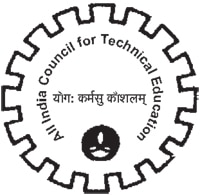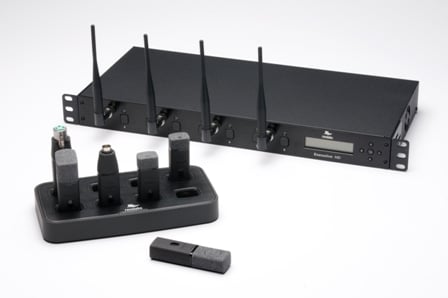 Once technology enabled education used to be a far-fetched idea for some. Thanks to our progressive education thinkers, the electronic content medium has gained momentum in Indian education. An analysis!
Once technology enabled education used to be a far-fetched idea for some. Thanks to our progressive education thinkers, the electronic content medium has gained momentum in Indian education. An analysis!
By Sharmila Das, Elets News Network (ENN)
We cannot go back to the age when we used to study beneath a Banyan tree. The picture looks blurred and irrelevant now as our education system rushes into a digital world. We have evolved from Gurukul education system to smart or e-content system. The country’s educational eco system has realised the benefits of using the said solution in their institutions and thus the acceptance has increased manifold.
Are there any limitations?
The dissemination of e-content can be effected by technical problems, which range from server being down, power being cut or something else. Moreover, in a smart class room, teachers are expected to present the e-Content in an appropriate manner. For this we need to have teachers who are well trained in the digital medium.
Sudha Goyal, Principal, Scottish High International School, Haryana, shares her experience, “It was really challenging to motivate all subject teachers to deploy e-Content in their classrooms and come out of their shells and be innovative in classes. Once they were ready to learn the technology aids, meticulously planned training programmes were conducted for all subject teachers and experts to help them in adapting to the e-Content”.
Norina Fernandes, Principal, Smt Lilavatibai Podar High School, says, “Initially teething problems were there in deploying e-content education systems in the school but we have sailed through them successfully by the following steps:
1) we organised competitions to motivate teachers’ and encourage their participation,
2) Teachers were less confident to operate the Starboard before their more tech savvy students. Teachers organised their own practice sessions with co-teachers to overcome this”.
A continuous handholding from the solution providers is needed to ensure the smooth functioning of the system. Chances are that with mutual understanding of both the parties (Schools and Solution Providers) the challenging areas of e-content solutions can be sailed through.
Benefits of e-Content in Education
|
A continuous handholding from the solution providers is needed to ensure the smooth functioning of the system
Ninad Vengurlekar, Sr VP & Head-Content Curriculum Group of IL & FS, a leading e-content solution provider, says, “Our
solution is called The K-Class Programme. It is a combination of technology, academic interventions and content to enhance teacher and student performance. K-Class works cohesively with schools in multiples of 3 years to strengthen the foundations of student performance and teacher Capability through innovative interventions. We offer repairs as well as replacements of our systems. In most cases, there is no extra charge”.
While the benefits and the impact of the education system are significant, it is also a fact that the solution deployment involves good investment from the schools side. In India only 25 percent of the schools can think of deploying e-content
in their education infrastructure.
Diwakar Rao, Director-Operations Educosoft, informs, “Cost of infrastructure would be Rs 80 thousand per class having the simplest of elements. For more innovative products in a classroom the investment would go up. Besides, the cost for accessing the content per child works out to be Rs100 per student per month”.
Veena Raizada, Director-Academics, Next Education shares, “Private schools have been few steps ahead of government schools in adopting digital content technology. However, we have seen a recent trend of government schools too adopting digital learning technology on a large scale”.
The digital education system has made deep forays into the schools in our urban areas, and now it is the turn of the semirural and rural schools to embrace it. To get a clearer picture of digital content deployment in India, we have interacted with many school principals and also the e-content solution providers to get their inputs on the way things are moving in the e-content space. Flip through the pages to make a tryst with a range of expert opinions.
















 The All India Council for Technical Education (AICTE) plans to hold the Common Management Admission Test (CMAT) overseas and also is expected to launch a job portal late this month.
The All India Council for Technical Education (AICTE) plans to hold the Common Management Admission Test (CMAT) overseas and also is expected to launch a job portal late this month.
 CBSE has posted the optical reading sheets (ORS) of students who appeared for the All India Engineering Entrance Examination (AIEEE) online. The AIEEE is the entrance test for most engineering institutes in the country, with the exception of the IITs.
CBSE has posted the optical reading sheets (ORS) of students who appeared for the All India Engineering Entrance Examination (AIEEE) online. The AIEEE is the entrance test for most engineering institutes in the country, with the exception of the IITs.
 Bengal state government has decided to give 10 per cent more seats in its colleges to accommodate higher secondary students. This decision has come for the second year in a row. The apprehension of high cutoff marks has prompted the government to tread the same path for the second time.
Bengal state government has decided to give 10 per cent more seats in its colleges to accommodate higher secondary students. This decision has come for the second year in a row. The apprehension of high cutoff marks has prompted the government to tread the same path for the second time.
 Higher and Technical Education Minister Laximikant Sharma has given his nod for common admission test (CAT) for engineering colleges (JEE) at the states’ Education Ministers conference in New Delhi recently.
Higher and Technical Education Minister Laximikant Sharma has given his nod for common admission test (CAT) for engineering colleges (JEE) at the states’ Education Ministers conference in New Delhi recently.
 Following the UGC recommendation of bringing multi-campus courses, now Karnataka State Higher Education Council has recommended starting multi-campus courses, inter-college and inter-university credit transfer system by 2020.
Following the UGC recommendation of bringing multi-campus courses, now Karnataka State Higher Education Council has recommended starting multi-campus courses, inter-college and inter-university credit transfer system by 2020.
 Revolab, a US based manufacturer of wireless audio products for enterprise collaboration and professional audio applications, has demonstrated Wireless products based on the new technology of unified communications providing crystal clear audio quality, versatility and flexibility of movement. Revolab has chosen Presto for the distribution on their product in the Indian market.
Revolab, a US based manufacturer of wireless audio products for enterprise collaboration and professional audio applications, has demonstrated Wireless products based on the new technology of unified communications providing crystal clear audio quality, versatility and flexibility of movement. Revolab has chosen Presto for the distribution on their product in the Indian market.
 The Rani Channamma University, Belgaum, the second largest varsity in Karnataka, had recently organised a seminar on the issue ‘Management Education-Road Ahead’ and with a view to revisit the road already traversed, assess the present situation and explore ways and means to restructure the system to make it meaningful, effective and productive. C.M. Thyagaraja, Professor and Chairman, Department of Post-Graduate Studies in Business Administration at RCU’s Vidyasangama campus in Belgaum, shared his views.
The Rani Channamma University, Belgaum, the second largest varsity in Karnataka, had recently organised a seminar on the issue ‘Management Education-Road Ahead’ and with a view to revisit the road already traversed, assess the present situation and explore ways and means to restructure the system to make it meaningful, effective and productive. C.M. Thyagaraja, Professor and Chairman, Department of Post-Graduate Studies in Business Administration at RCU’s Vidyasangama campus in Belgaum, shared his views.











